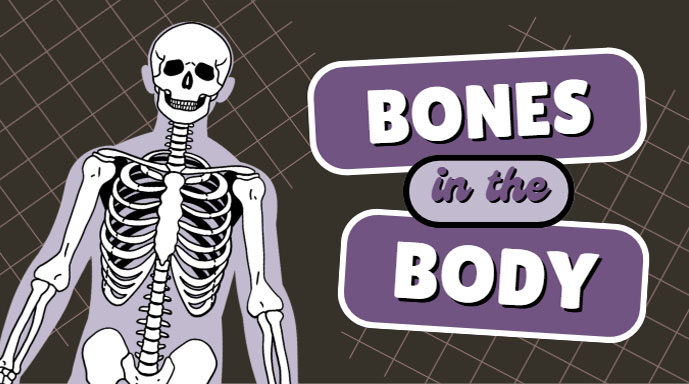- You have no items in your shopping cart
- Continue Shopping

What is the importance of Vitamin D in our health and body?
Vitamin D, often referred to as the “sunshine vitamin,” is one of the most essential nutrients for the human body. While it is commonly known for its role in supporting bone health, its functions extend far beyond that. From boosting the immune system to supporting mental health, vitamin D plays a crucial role in maintaining overall well-being. Despite its importance, vitamin D deficiency is alarmingly common worldwide, largely due to modern lifestyles that limit sun exposure.
In this article, we’ll explore what vitamin D is, its sources, how it benefits our body, the signs of deficiency, and how to maintain optimal levels for lifelong health.
What is Vitamin D?
Vitamin D is a fat-soluble vitamin that acts more like a hormone than a traditional nutrient. It exists in two primary forms:
- Vitamin D2 (ergocalciferol): Found in some plants and fortified foods.
- Vitamin D3 (cholecalciferol): Produced in the skin when exposed to sunlight and found in animal-based foods.
Once consumed or synthesized, vitamin D is converted in the liver and kidneys into its active form, calcitriol, which the body uses to regulate calcium, support immune function, and manage many other processes.
Why is Vitamin D So Important?
1. Strengthens Bones and Teeth
Vitamin D helps the body absorb calcium, which is essential for building and maintaining strong bones and teeth. Without sufficient vitamin D, calcium absorption is impaired, leading to weak bones, increased risk of fractures, and conditions like rickets in children or osteoporosis in adults.
2. Supports Immune Function
Vitamin D plays a vital role in enhancing the pathogen-fighting effects of monocytes and macrophages — white blood cells that defend the body. It also helps reduce inflammation, which is key in fighting infections. Studies have shown that people with low vitamin D levels may be more susceptible to illnesses such as colds, flu, and respiratory infections.
3. Improves Mood and Mental Health
Vitamin D receptors are present in the brain, and the nutrient influences mood-regulating neurotransmitters like serotonin. Research links vitamin D deficiency to depression, seasonal affective disorder (SAD), and even anxiety. Supplementation has been shown to improve mood in people with low levels.
4. Supports Muscle Function
Healthy levels of vitamin D are essential for muscle strength and coordination. Deficiency can lead to muscle weakness, increasing the risk of falls and injuries, especially in older adults.
5. Reduces Risk of Chronic Diseases
Emerging studies suggest that adequate vitamin D levels may help reduce the risk of chronic diseases, including:
- Type 2 diabetes
- Hypertension
- Heart disease
- Certain cancers (particularly colon, breast, and prostate)
- Autoimmune diseases like multiple sclerosis and rheumatoid arthritis
While more research is needed, these links further underline vitamin D’s crucial role in health maintenance.
Symptoms of Vitamin D Deficiency
Vitamin D deficiency is incredibly common — especially among people who spend limited time outdoors, wear sunscreen regularly, live in colder climates, or have darker skin (which reduces vitamin D synthesis).
Common symptoms include:
- Fatigue
- Bone pain or muscle weakness
- Depression or mood changes
- Frequent illness or infections
- Slow wound healing
- Hair loss
Long-term deficiency can lead to serious complications like rickets in children or osteomalacia in adults.
Sources of Vitamin D
🌞 1. Sunlight
The most natural source of vitamin D is sunlight exposure. Just 10–30 minutes of midday sun several times per week on bare skin can provide adequate amounts, though this varies based on skin tone, location, and season.
Note: Excessive sun exposure increases the risk of skin cancer, so balance is key.
🥗 2. Food Sources
While few foods naturally contain vitamin D, some options include:
- Fatty fish (salmon, mackerel, sardines)
- Cod liver oil
- Egg yolks
- Fortified foods (milk, orange juice, cereals, plant-based milk)
💊 3. Supplements
Vitamin D supplements are widely available and often necessary for people who don’t get enough through sun exposure or diet. The most effective form is vitamin D3 (cholecalciferol).
The recommended daily intake varies, but many experts suggest:
- 600–800 IU/day for most adults
- 1000–2000 IU/day for those with minimal sun exposure or existing deficiency
Always consult a healthcare provider before starting supplements.
How to Maintain Healthy Vitamin D Levels
- Get safe sun exposure. Aim for short bursts of sunlight without sunscreen a few times per week.
- Incorporate vitamin D-rich foods into your diet.
- Get tested if you suspect deficiency (25-hydroxy vitamin D blood test).
- Use supplements responsibly if needed.
- Monitor levels regularly if you’re at higher risk (e.g., elderly, darker-skinned, limited sun access).
- Intake Fern-D every day



